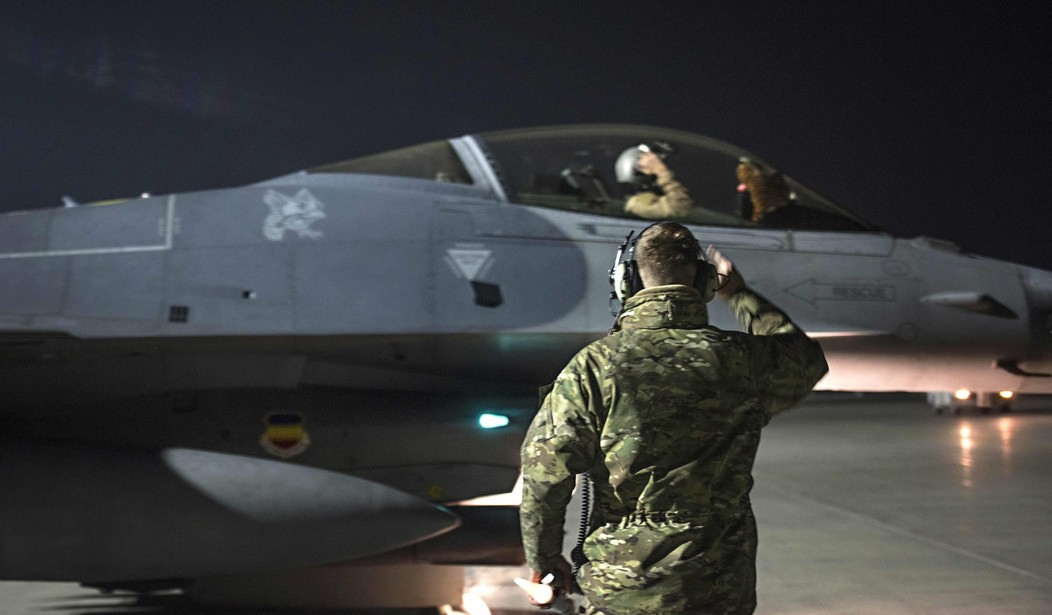WASHINGTON — The commander of coalition forces in Afghanistan told a Senate panel Thursday that American withdrawal from the country would ensure that terrorists there are able to again plan and execute an attack on the United States.
Gen. John Nicholson also warned that Russia has been giving support to the Taliban, who have continued to wage attacks in the country — including killing four Americans at Bagram Airfield in November — while training with al-Qaeda.
Sen. Tom Cotton (R-Ark.) said at the Armed Services Committee hearing that while the U.S. has “accomplished a lot of things there that benefit the Afghan people… we have to worry more, though, about the safety and the prosperity and the education of the American people.”
“If the United States just said we’ve had enough, you know, 15 years is long enough, let’s just roll up our operation there and come home. Do think that we would face the risk of an attack planned and directed from Afghanistan?” Cotton asked.
“Yes, senator, definitely,” Nicholson replied.
The Resolute Support Mission commander said success “means that we would destroy the Islamic State and al-Qaeda inside Afghanistan.” ISIS has been trying to stake out more territory in the country.
“It means that we would help the Afghan security forces and government to extend their control to a larger and larger percentage of the population. It means that we would help Afghanistan to become, ideally, a place where reconciliation is achieved with the belligerents. And then they become — can become a more stable and prosperous entity in a critical part of the world,” Nicholson said.
“I recognize the distance of Afghanistan and the length of this has been challenging for the American people to support. However, I personally believe that this effort we’re undertaking there is protecting the homeland and preventing these terrorists from bringing their fight to our doorstep.”
Nicholson said “just within the last year” Russia began cozying up to the Taliban — “this has started and it was a gradual progression,” and the support continues to increase.
“I think we better let President Trump know that,” said Sen. Bill Nelson (D-Fla.).
“Yes, sir,” the general replied.
“If Russia is cozying up to the Taliban, and that’s a kind word, if they are giving equipment that we have some evidence that the Taliban is getting it and other things that we can’t mention in this unclassified setting. And the Taliban is also associated with al-Qaeda,” Nelson noted. “Therefore Russia, indirectly, is helping al-Qaeda.”
“Yes, sir,” Nicholson affirmed.
The general added that he believes Russia is “concerned that if there’s a coalition and a U.S. presence in Afghanistan that this affects their ability to influence the Central Asian states to the north.”
Pressed on what Russia’s endgame in Afghanistan could be, Nicholson said he thinks the Kremlin’s goal is to “undermine United States and NATO.” Russia ally Iran also believes that successful democracy in Afghanistan “will be a threat to them,” he added.
“The Taliban are the ones who are connected to al-Qaeda. The Afghan people, 87 percent of them, think a return to Taliban rule would be bad for the country,” he noted.
Sen. Lindsey Graham (R-S.C.) asked if the Taliban should be designated a foreign terrorist organization — something the Obama administration resisted as it encouraged negotiations and a political settlement with the group. Nicholson confirmed the Taliban “are definitely our enemy in Afghanistan” and if the administration levied the designation he’d have greater latitude to engage the enemy.
The Taliban have reached out to President Trump multiple times since his election, telling him they’re not a terrorist group and trying to convince him that he doesn’t want Afghanistan defeat on his record.
Losing in Afghanistan, Nicholson stressed, “would be an attack emanating from this region against our homeland or our allies.”
“Is it likely if we leave?” Graham asked.
“I think so, sir, it’s just a matter of time,” the general responded.
Nicholson said he feels like “the conversation’s open” with the Trump administration to ask for more troops if needed. “My initial impression — and again, these conversations are ongoing — is that we’re open to a discussion of an objectives-based approach and conditions-based approach,” he said.









Join the conversation as a VIP Member